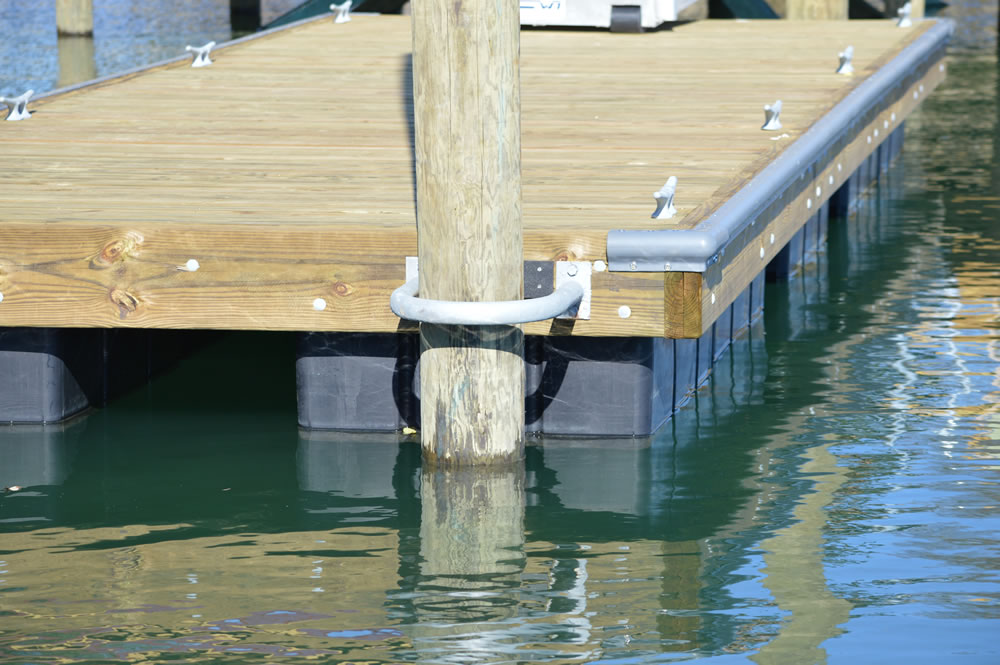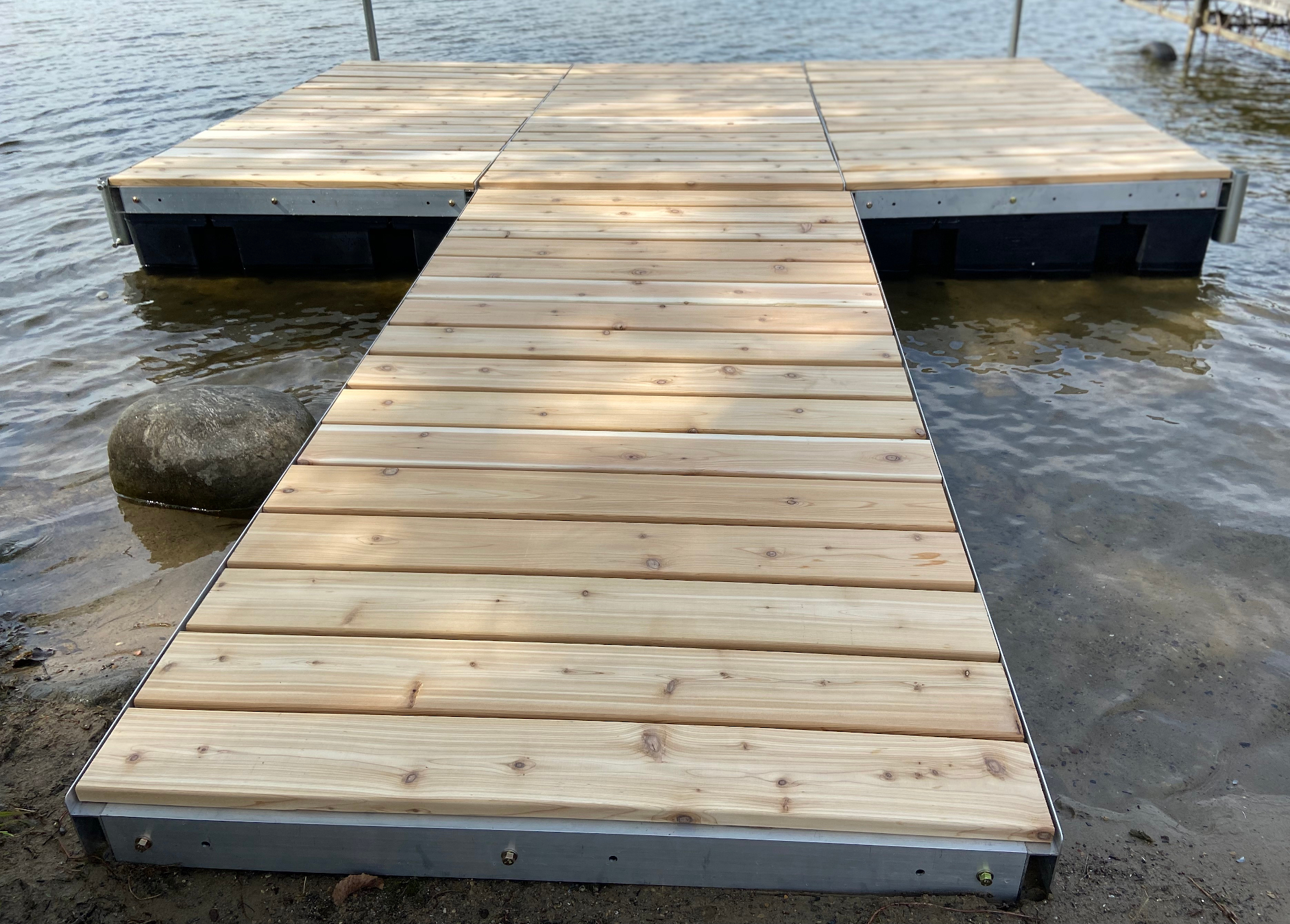Floating Docks: The Ideal Option for Versatile Water Access
Floating docks existing an engaging option for a selection of water access requires, supplying flexibility that transcends typical mooring options. Their ability to adjust to fluctuating water degrees while making sure stability and safety and security makes them particularly useful for both leisure and industrial applications. Moreover, the modular nature of floating docks assists in modification, providing to certain demands. However, the subtleties of installation and upkeep, together with the variety of applications, necessitate a closer assessment to totally appreciate their prospective advantages and effects for river gain access to approaches.
Advantages of Floating Docks
Floating docks offer various benefits that enhance water access for numerous applications. Their capacity to fluctuate with transforming water degrees makes them especially beneficial in environments with changing trends or seasonal variations. This adaptability makes certain that vessels can conveniently anchor without issue for the water's depth, giving a trusted platform for entertainment, commercial, and industrial usages.
In addition, floating docks are often built from sturdy products that stand up to corrosion, making them ideal for lasting use in marine environments. Their installment is usually less invasive than traditional set docks, decreasing the environmental effect and helping with quicker release (dock company). This flexibility enables for less complicated relocation or reconfiguration according to individual requirements or environmental changes
Safety and security is one more crucial benefit; floating docks can supply steady access for people boarding or disembarking from watercrafts and decrease the danger of crashes linked with unpredictable surface areas. Moreover, they can be designed to suit a variety of devices, such as cleats and fenders, enhancing functionality. Generally, floating docks stand for an efficient option for enhancing water gain access to throughout diverse sectors while advertising security and ecological sustainability.

Kinds Of Floating Docks
Various kinds of floating docks deal with various needs and environments, each developed with certain functions to enhance functionality. The most usual types include modular docks, which include interlocking sections that permit easy modification and development. These docks are excellent for recreational usage, as they can be customized to fit different watercraft sizes and water problems.
One more popular alternative is the fixed floating dock, which remains anchored in position but floats with changing water levels. floating docks. This type is specifically fit for areas with marginal tidal fluctuations, offering steady gain access to for angling or swimming. In addition, there are drive-on docks, which include a sloped layout that enables watercrafts to conveniently drive on and off, making them suitable for individual watercraft and smaller vessels
For industrial applications, heavy-duty floating docks are available, constructed from enhanced products to withstand significant lots and harsh marine atmospheres. Last but not least, environmentally friendly floating docks use lasting materials and layouts to reduce ecological impact, typically integrating functions like vegetation to sustain neighborhood wild animals. Comprehending the numerous kinds of floating docks makes certain that individuals can select one of the most appropriate solution for their details demands.
Installment Process Summary
A successful installation of floating docks calls for careful preparation and focus to detail to guarantee optimal performance and security. The initial action includes examining the website conditions, including water deepness, present, and possible obstacles. This assessment informs the choice of the appropriate dock products and design customized to the specific atmosphere.
Next, obtaining required licenses is floating dock company vital, as lots of jurisdictions have policies regarding construction on water bodies. As soon as permissions are protected, the installation can proceed. Begin by preparing the foundation, which might involve anchoring systems or pilings tailored to the dock kind and regional problems.
Adhering to the structure setup, assemble the dock sections according to maker specifications. Ensure that all parts are securely attached and lined up to endure environmental stress and anxieties. Setting the dock in the designated location, ensuring it is degree and steady.

Upkeep Tips and Finest Practices
After the installment procedure is full, continuous maintenance plays an essential function in ensuring the longevity and capability of floating docks. Routine examinations should be conducted to determine any kind of signs of wear, damages, or damage - floating dock builder. Look for any loosened fittings, fractures, or separation in the dock areas, as these can jeopardize architectural honesty
Cleaning up the dock is vital to eliminate debris, algae, and other build-up that can influence its look and safety and security. Use a mild pressure laundry periodically to keep tidiness without triggering damage to the surface. Furthermore, applying a protective sealer every couple of years can assist improve durability and stand up to environmental wear.
Focus on the mooring lines and supports, ensuring they are get more free and safe from corrosion. Replace any degraded parts immediately to stay clear of dangers. Seasonal modifications might also be needed; throughout severe climate condition, repositioning or enhancing the dock can protect against damage.
Applications for Floating Docks
Floating docks serve a multitude of applications, providing to both entertainment and commercial needs. In entertainment setups, they offer smooth accessibility to waterways for tasks such as boating, angling, and swimming. Their flexible nature allows for setup in differing water levels, making sure secure and steady access no matter of tidal changes.
Readily, floating docks are important for marinas and beachfront businesses. They help with the docking of vessels, making it possible for reliable dumping and packing of products. Their modular style permits simple development or reconfiguration to accommodate changing business needs, making them excellent for watercraft leasings, excursion procedures, or fishing charters.
Additionally, floating docks are used in environmental applications such as marine study and environment reconstruction. They can other work as systems for scientific studies, keeping track of water high quality, or carrying out wildlife surveys without disturbing delicate ecological communities.
In commercial contexts, floating docks are utilized in construction tasks, supplying accessibility to hard-to-reach locations for equipment and personnel. Their versatility, resilience, and minimal influence on the environment make them an optimum choice for a vast array of applications, enhancing both capability and access in different water-based atmospheres.
Final Thought
To conclude, floating docks stand for an ideal remedy for varied water gain access to requires, owing to their versatility, toughness, and modular layout. These frameworks assist in risk-free mooring for different applications while lessening environmental effect during installation. The minimized upkeep needs even more enhance their functionality. Floating docks serve as an important possession for recreational, commercial, and environmental jobs, guaranteeing trustworthy accessibility to rivers and advertising lasting practices in marine atmospheres.
Floating docks present an engaging solution for a variety of water gain access to requires, supplying adaptability that transcends traditional mooring alternatives.Floating docks offer countless benefits that boost water gain access to for numerous applications. In general, floating docks stand for an effective service for improving water access throughout diverse industries while promoting safety and environmental sustainability.
An additional preferred alternative is the stationary floating dock, which stays secured in place but drifts with changing water levels.In conclusion, floating docks represent an optimal remedy for diverse water access needs, owing to their flexibility, toughness, and modular layout.